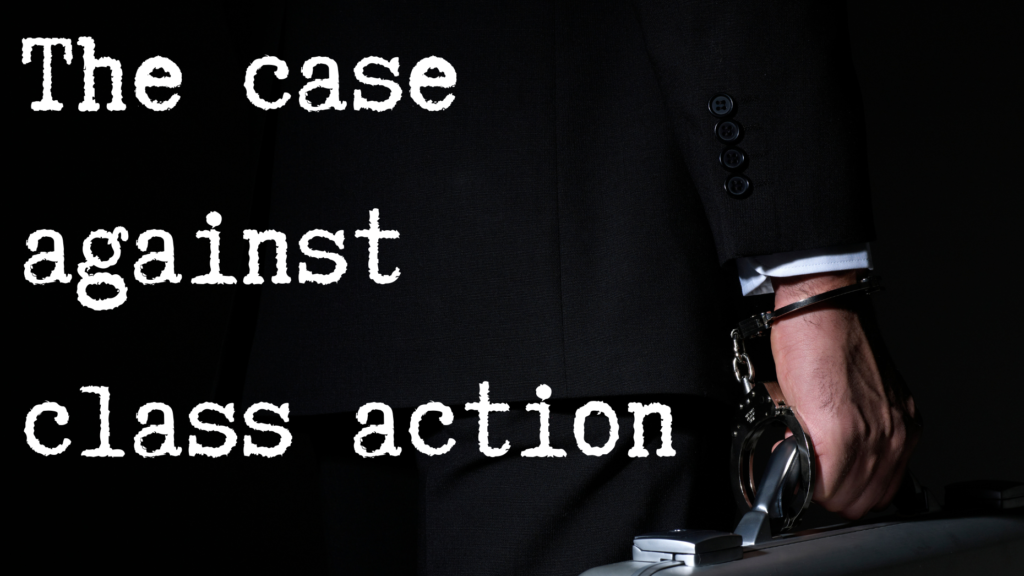Jay Thompson is a former brokerage owner who spent over six years working for Zillow Group. He’s also the co-founder of AgentLoop. He “selectively retired” in August 2018, but can’t seem to leave the real estate industry behind. His Inman column is published every Wednesday.
You’ve made it through hours of, let’s face it, often mind-numbingly boring real estate classes. You’ve passed your state and national exams. You’ve found the perfect real estate brokerage to hang your license with. You’ve set your credit card on fire buying supplies and association and MLS memberships. Now you’re ready to set the world on fire and become a wildly successful real estate agent!
How much have you thought about your safety?
Odds are good you haven’t given safety much thought, and if you have, I can assure you that it’s not enough thought.
Some brokerages and associations do a good job of creating awareness and providing tips for agent safety. Sadly, many do not and it only pops up in conversation after yet another tragedy occurs.
The media is full of stories about agents getting assaulted, raped and killed. Yes, the vast majority of agents never face a safety-related situation. But all it takes is once, and the simple fact is that as a “lone worker” you will frequently be placed in situations where your safety could be compromised.
Shortly after the tragic death of Arkansas agent Beverly Carter, the Beverly Carter Foundation was created to increase awareness and provide training related to real estate agent safety. I’ve had the pleasure, and often heartbreaking, job of serving on the foundation’s board of directors for over three years.
In that time, I’ve spoken with safety experts and countless agents who have experienced safety-related problems in their daily tasks. Most of these stories never make the news.
There isn’t a need to be overly paranoid about what can happen to you. But you must be aware and practice good safety habits, always. Your safety is non-negotiable and you need to do everything you can to keep yourself safe.
Here are a few tips that can help you be safer in your daily activities as a real estate agent.
Don’t do it alone
There is safety in numbers. Most agent safety issues happen when agents are alone. While it’s virtually impossible to always have someone with you, there are many times when you can. And it not only helps you be safer, but it can also help your business.
Take a partner to an open house. A good lender can speak with open house attendees about lending options. They can even pre-qualify them for a mortgage on the spot. A home inspector or contractor can discuss maintenance tips. Does the listing have a pool? Tap a local pool store for an expert in pool care.
Ask a fellow agent to accompany you on showings. As a new agent, it’s an opportunity for you to learn from an experienced agent.
Never meet a new client alone. Bring them into your office, or meet them at a public coffee shop or cafe.
Practice good situational awareness
Every safety expert agrees that proactively preventing a safety issue before it occurs is far superior to reacting to a live safety event. The single best way to avoid a serious situation is to practice good situational awareness.
In a nutshell, situational awareness is simply being cognizant and aware of your situation and surroundings. Trust your gut. If something feels wrong, it probably is. There has never been a commission check cut that is worth compromising your safety.
Screen your contacts and clients
You have to show your driver’s license to
- rent a car
- stay in a hotel
- buy a beer
- donate blood
- get on an airplane
Yet the real estate industry is reluctant to ask a total stranger to show ID before meeting them, alone, in a vacant house. Yes IDs can be faked. But asking for an ID is a simple step that can prevent many potential safety issues. Your brokerage should have a policy requiring a client to show ID in the initial stages of the home buying/selling process. It’s not an “invasion of privacy;” it’s common sense.
Take classes and practice self-defense techniques
Every agent should take a self-defense class. Personally, I think it should be a requirement to hold a license, along with regular refresher classes.
The problem with any method of self-defense is that if the techniques and tools are not regularly practiced, they swiftly lose their effectiveness. There is a reason law enforcement regularly practices — it’s to build muscle memory. No one knows how they will react in a situation, and the more you practice, the better chance you have of remembering your self-defense tactics and employing them correctly.
This brings up the often discussed topic whenever safety conversions arise of whether to carry a weapon. That’s a deeply personal choice, and much of the decision is governed by state and local law and regulations. If you choose to arm yourself, you must frequently practice using your weapon. Always remember that carrying a weapon does not guarantee your personal safety.
Use a safety app
Technology can be both a blessing and a curse. In the case of safety, it’s much more of a blessing. There are numerous safety apps out there that can be valuable tools in the safety toolbox. But simply installing an app on your phone doesn’t help. You have to use it, every time.
It’s not just violent crime
Odd as it may sound, the easy things to talk about are what can be done to help prevent violent crime. Often forgotten though are other safety-related things an agent should be aware of.
As an agent, you spend a lot of time in your car. What increases the more you drive? Your chances of a breakdown or an accident.
Be prepared for a breakdown. Make sure your spare tire isn’t flat, and know how to change a tire. Keep a car safety kit in your trunk with basic tools, flares and cones.
Know what to do if someone suspicious starts following you (drive to a police station or public place). Being alert and aware of your surroundings goes for while you’re driving, too. Don’t drive when you’re exhausted.
Another thing agents do is send a lot of email and texts, some involving client financials. Be aware of cybercrime and understand basic preventive tactics.
Sadly, nothing eliminates the safety threat
None of these tips will eliminate the safety threat. They can, however, reduce that threat. Be vigilant, be aware, and never take your safety for granted.
Please see 61 safety tips every real estate agent should read for more safety-related tips.
Jay Thompson is a real estate veteran and co-founder of AgentLoop living in the Texas Coastal Bend. Follow him on Facebook, Instagram and Twitter. He holds an active Arizona broker’s license with eXp Realty. Called “the hardest working retiree ever,” as the founder of Jay.Life, he writes, speaks and consults on all things real estate.



 Are You Interested in West Eleventh Residences Miami?
Are You Interested in West Eleventh Residences Miami? Are You Interested in ONE Park Tower by Turnberry?
Are You Interested in ONE Park Tower by Turnberry? Are You Interested in Diesel Wynwood Condominium?
Are You Interested in Diesel Wynwood Condominium? Are You Interested in Five Park Miami Beach?
Are You Interested in Five Park Miami Beach? Are You Interested in Cipriani Residences Miami?
Are You Interested in Cipriani Residences Miami? Are You Interested in Bentley Residences Miami?
Are You Interested in Bentley Residences Miami? Are You Interested in Baccarat Residences Brickell?
Are You Interested in Baccarat Residences Brickell? Are You Interested in Aria Reserve Miami?
Are You Interested in Aria Reserve Miami? Are You Interested in 888 Brickell Dolce & Gabbana | Miami?
Are You Interested in 888 Brickell Dolce & Gabbana | Miami? Are You Interested in 600 Miami WorldCenter?
Are You Interested in 600 Miami WorldCenter? Are You Interested in HUB MIAMI RESIDENCES?
Are You Interested in HUB MIAMI RESIDENCES? Are You Interested in WALDORF ASTORIA RESIDENCES?
Are You Interested in WALDORF ASTORIA RESIDENCES?